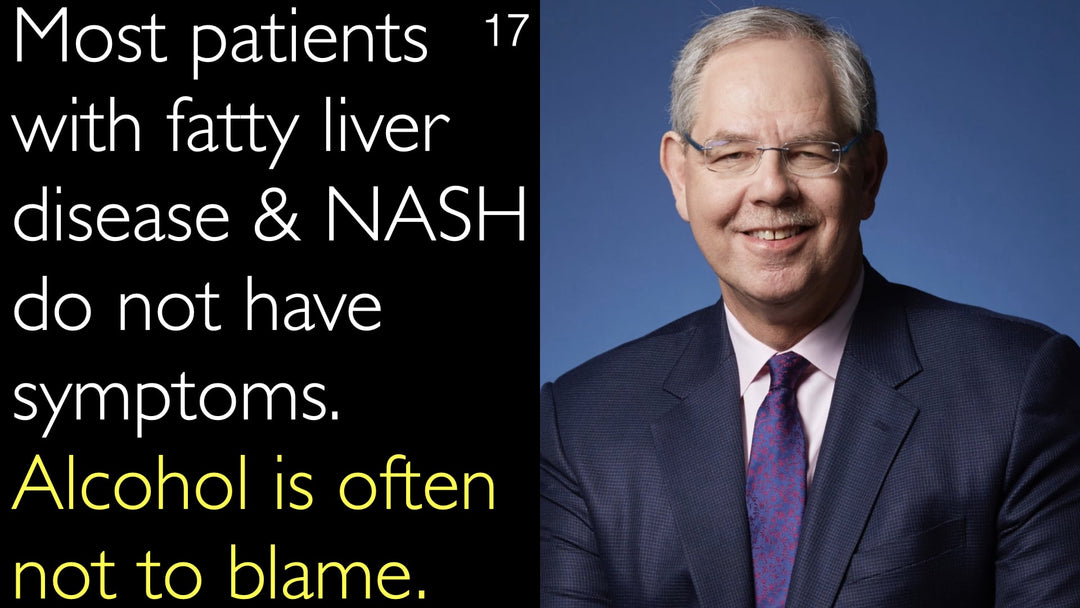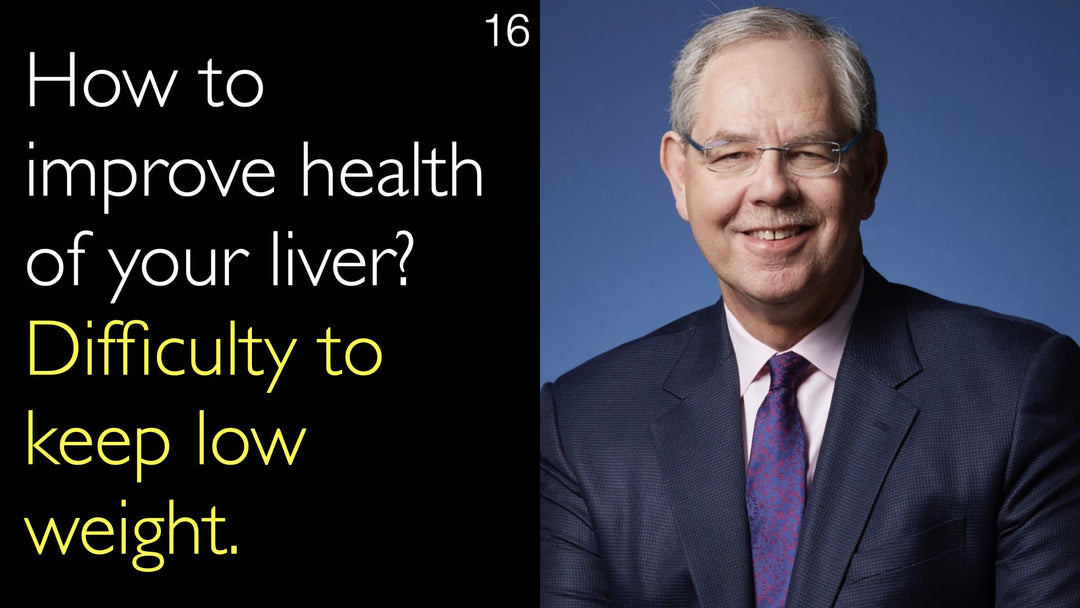Maksasairauksien johtava asiantuntija, tohtori Scott Friedman, MD, selittää, että useimmat rasvamaksan ja NASH:n (ei-alkoholinen stetaatohepatiitti) potilaat ovat oireettomia. Hän korostaa, että alkoholi ei yleensä ole taudin syynä. Potilaat saavat usein diagnoosin sattumalta kuvantamis- tai verikokeiden yhteydessä. Tämä voi aiheuttaa merkittävää pelkoa ja sosiaalista leimaa. Tohtori Scott Friedman, MD, painottaa, että potilaat tulee vakuuttaa siitä, että heidän maksasairautensa ei liity alkoholin käyttöön.
Rasvamaksan sairaus ja NASH: Oireet, syyt ja potilaan vakuuttaminen
Hyppää kohtaan
- Rasvamaksan sairauden oireettomuus
- Tyypillinen esiintyminen ja diagnosointi
- Alkoholiin liittyvät väärinkäsitykset maksasairauksissa
- Potilaan pelon ja ennakkoluulojen käsitteleminen
- Potilaan vakuuttaminen maksasairauksien syistä
- Täysi transkriptio
Rasvamaksan sairauden oireettomuus
Lääketieteen tohtori Scott Friedman korostaa rasvamaksan sairauden ja NASHin (ei-alkoholisen stetaatohepatiitin) keskeistä piirrettä: useimmat potilaat eivät koe oireita. Ilmeisten varoitussignaalien puute tarkoittaa, että potilaat usein eivät tiedä sairaudestaan. Sairaus voi edetä hiljaa ilman fyysisiä merkkejä. Tämä oireeton kliininen kuva haastaa varhaisen toteamisen ja hoidon.
Tyypillinen esiintyminen ja diagnosointi
Lääketieteen tohtori Scott Friedman kuvailee tyypillisen diagnoosipolun. Potilaat saavat usein selville sairautensa sattumalta muiden lääketieteellisten tutkimusten yhteydessä. Lääkäri voi määrätä ultraäänitutkimuksen epämääräisen vatsakivun vuoksi, ja kuvantaminen paljastaa maksassa olevaa rasvaa. Vaihtoehtoisesti rutiininomaiset verikokeet voivat osoittaa kohonneita maksan entsyymiarvoja. Tämä satunnainen löydös on yleisin tapa, jolla rasvamaksan sairaus paljastuu.
Alkoholiin liittyvät väärinkäsitykset maksasairauksissa
Merkittävä väärinkäsitys liittyy maksasairauden syihin. Lääketieteen tohtori Scott Friedman korostaa, että useimmat maksasairautta sairastavat potilaat eivät käytä alkoholia liikaa. Hepatologian ala on epäoikeudenmukaisesti kantanut tätä assosiaatiota. Automaattinen yhteys maksasairauden ja alkoholiongelmien välillä on usein virheellinen. On ratkaisevan tärkeää erottaa metabolisten maksasairauksien syyt alkoholista aiheutuvista sairauksista.
Potilaan pelon ja ennakkoluulojen käsitteleminen
Diagnoosi voi herättää suurta pelkoa ja ahdistusta. Lääketieteen tohtori Scott Friedman huomauttaa, että potilaat usein pelkäävät saadessaan selville maksatilastaan. Tätä pelkoa pahentaa maksasairauksiin liittyvä sosiaalinen ennakkoluulo. Perheenjäsenet ja ystävät saattavat virheellisesti olettaa potilaalla olevan alkoholiongelma. Tämä sopimaton oletus aiheuttaa potilaalle tarpeetonta emotionaalista taakkaa.
Potilaan vakuuttaminen maksasairauksien syistä
Lääketieteen tohtori Scott Friedman tarjoaa ratkaisevan tärkeää ohjeistusta potilassidokselle. Hän neuvoo lääkäreitä antamaan selkeää vakuuttamista: potilaiden tulee ymmärtää, että useimmat maksasairaudet eivät johdu alkoholista. Heidän ei tarvitse tuntea pakkoa selittää tilansa muille alkoholiin liittyvänä. Tämä vakuuttaminen on olennainen osa potilaan psykologista hoitoa ja vähentää diagnosiin liittyvää ennakkoluuloa.
Täysi transkriptio
Lääketieteen tohtori Anton Titov: Professori Friedman, voisitteko kertoa klinisen esimerkin, joka havainnollistaa tänään käsiteltyjä aiheita? Ehkä potilaan tarina tai yhdistelmä potilaiden tarinoista laajan kokemuksenne pohjalta.
Lääketieteen tohtori Scott Friedman: Kaikki me kohtaamme potilaita, jotka ovat huolissaan, koska heillä ei ole ollut aavistustakaan maksaongelmista, mutta heillä on kuitenkin epämääräistä kipua. Lääkäri voi määrätä ultraäänitutkimuksen, ja heille kerrotaan, että heillä on rasvaa maksassa tai kohonneet maksan arvot. Tämä herättää suurta pelkoa.
En nimeä yhtä tiettyä esimerkkiä, mutta tämä on todennäköisesti yleisin esiintymismuoto: potilailla ei ollut aavistustakaan sairaudesta. He myös yhdistävät virheellisesti minkä tahansa maksaongelman siihen, että he saattavat juoda liikaa alkoholia. Useimmat maksasairautta sairastavat potilaat eivät käytä alkoholia liikaa.
Valitettavasti koko maksasairausalan on kantanut tätä taakkaa. Potilaat tai heidän perheensä usein olettavat sopimattomasti, että koska heillä on maksaongelmia, he juovat liikaa. Näin ei yleensä ole.
Joten erotessani haluan korostaa potilaiden kanssa käytävää keskustelua ja heidän vakuuttamista siitä, että useimmat maksasairaudet eivät johdu alkoholista. Potilaiden ei tarvitse selittää tilannetta itselleen, perheelleen tai kenellekään muulle.







